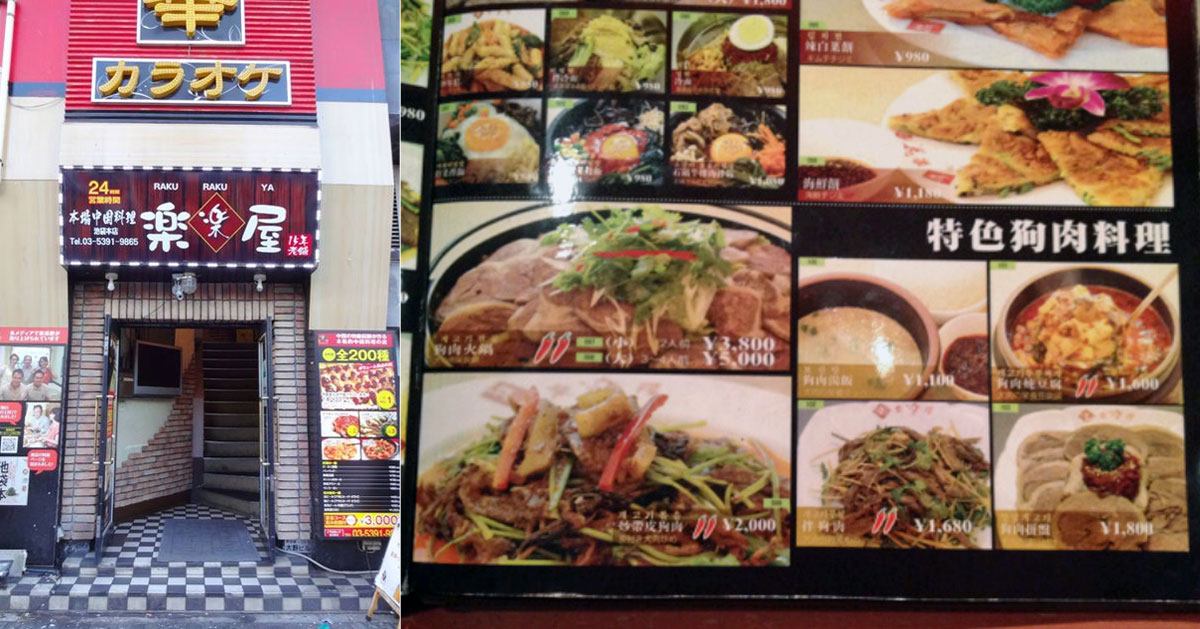The Japanese are not known to eat dog meat these days.
But restaurants selling dog meat in the country can be found.
Soups and stir-fried dishes
What is actually shocking and upsetting for many people to find out these days is that such eateries are more readily available than you think.
According to Naver Matome, an online platform that allows users to collate information relating to one particular topic on a single page, such restaurants are all over the Japanese capital of Tokyo.
It is a matter of recognising which ones.
What kind of restaurants?
And this is where some cultural understanding comes in.
Restaurants that do serve dog meat usually specialise in Chinese or Korean cuisine, although some of them do serve Japanese food too.
For instance, the following Chinese restaurant, called Raku Raku ya is found in Ikebukuro, a bustling commercial and entertainment district in Tokyo.
 Image via Rakurakuya/Tabelog
Image via Rakurakuya/Tabelog
Some Korean restaurants, such as the following one, serves dog meat too.
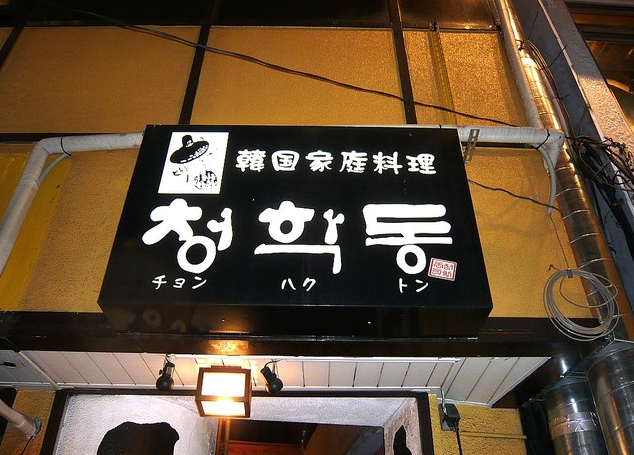 Image via Chonhakuton/Tabelog
Image via Chonhakuton/Tabelog
Which eateries to avoid
For the casual tourists in Japan who do not want to come into contact with dog meat at all, possessing this knowledge of dog meat being sold in Tokyo might come in handy: You now know what to look out for to avoid eateries that do sell dog meat.
And for those who are squeamish, you might want to stop reading.
There is no graphic content in this article, except that there are photos of cooked dishes below.
The images are understood to be upsetting for a lot of dog lovers, so you are advised to stop reading.
Ways of serving
Still following? Okay here goes.
Dog meat is served in several ways, such as hot pot:
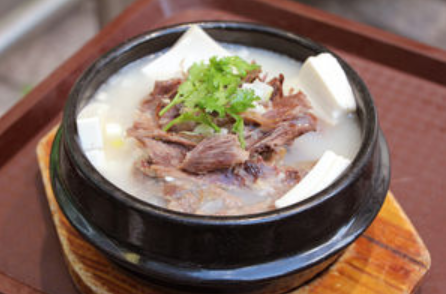
Meat and skin stir-fry (dish in the foreground):
羊頭狗肉ならぬ羊肉狗肉。池袋の延辺料理店・楽々屋で食べた羊のクミン炒め(奥)と狗肉の皮付き炒め(手前・皆が貪った後なので量が減ってます)。既に酒が回っていたせいか、どっちが狗でどっちが羊か迷う人が出たくらいで、どちらも旨かったです。 pic.twitter.com/SbmyEaRDKa
— 墨東公安委員会 (@bokukoui) May 25, 2013
Or simply served cooked, with garnishes and seasonings:
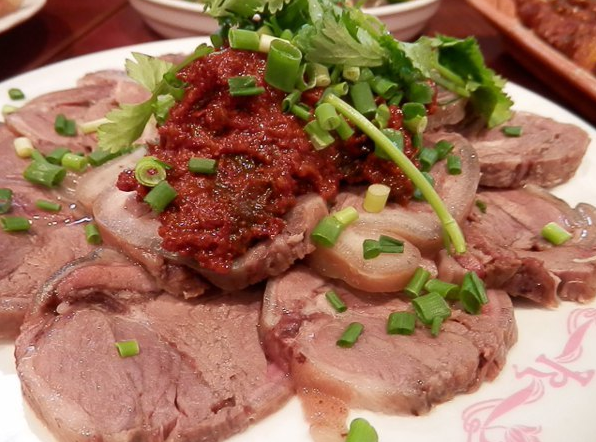 Image via Keikakaku/Tabelog
Image via Keikakaku/Tabelog
How is the menu displayed?
These dishes are often labelled not with the Chinese character 犬 (inu), but with the Chinese character that the Chinese use for dogs, which is 狗 (gou).
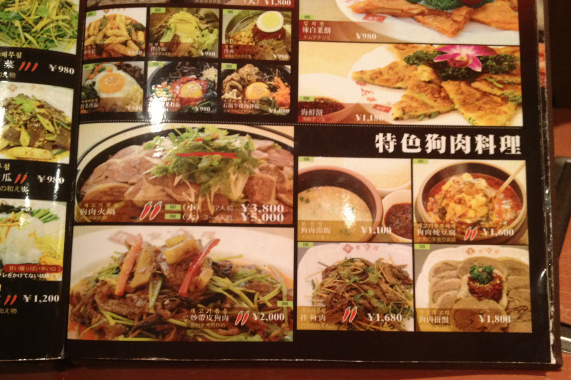 Image via SoraNews24
Image via SoraNews24
The Japanese use the former to refer to dogs, but not the latter, which is a Chinese character they are unfamiliar with.
As a result, most Japanese people do not know that these restaurants serve dog meat.
However, the word 犬 can sometimes be found on the menu.
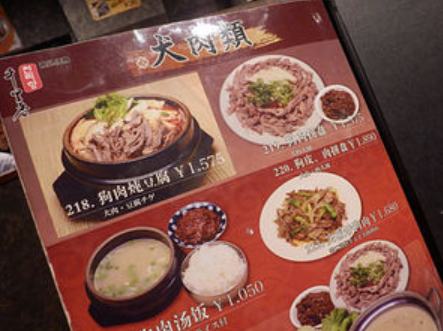 Image via Senrikou/Tabelog
Image via Senrikou/Tabelog
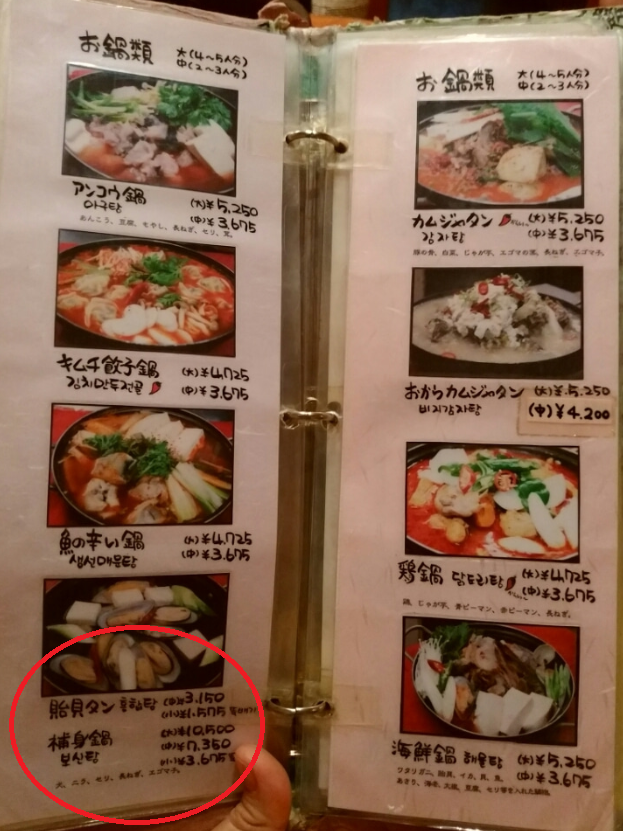 Image via Hoyomemin
Image via Hoyomemin
And also in supermarkets that sell it.
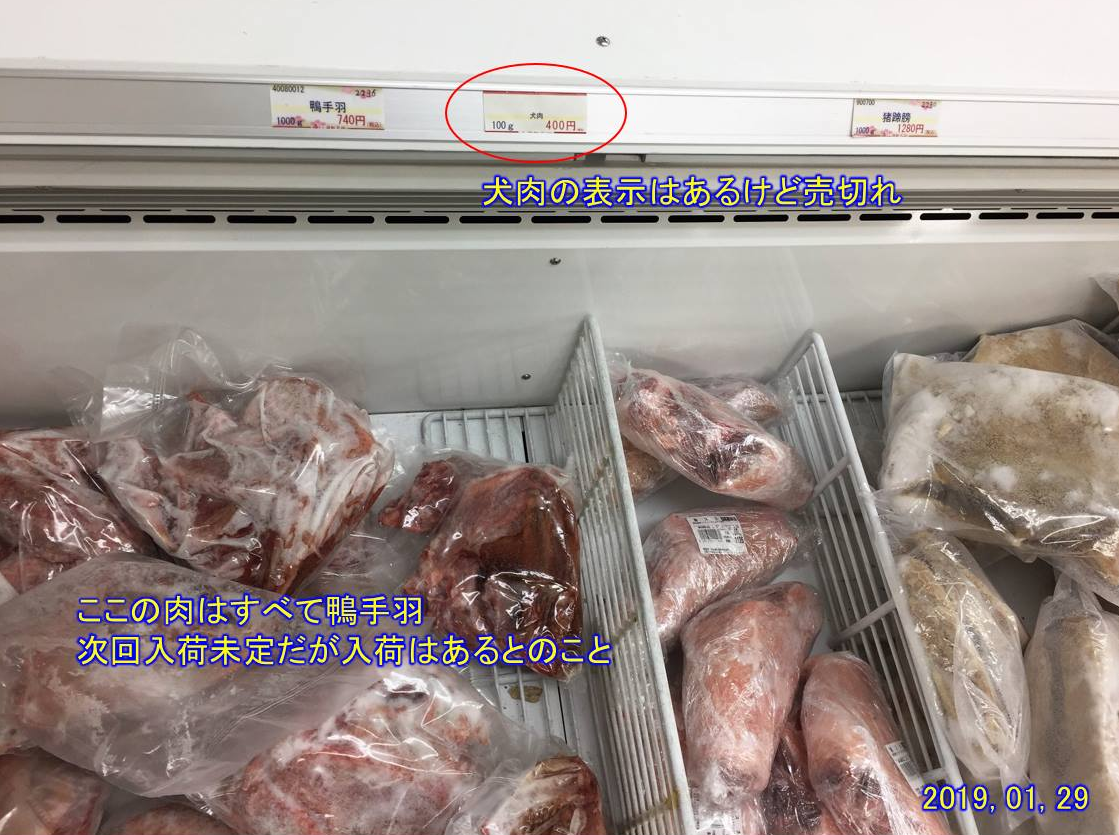 Dog meat found in a supermarket in Osaka. (Image via
Dog meat found in a supermarket in Osaka. (Image via
Eating dog not illegal in Japan
Import of dog meat into Japan is not illegal.
Most of the meat found in Japan are imported from countries such as China and South Korea.
Although dog meat consumption occurs and is not very widespread, local activists have spoken out against the practice in Japan, with some even campaigning for the import of dog meat into the country to be outlawed.
 Screenshot via ecoecoazarashi2
Screenshot via ecoecoazarashi2
A different kind of food culture
Modern-day Japan has a strong stigma surrounding the consumption of dog meat.
But dog meat was consumed by the Japanese in the past.
In 675 A.D., the Emperor Tenmu banned the killing and eating of meat throughout Japan between April and September, according to Kikkoman Institute for International Food Culture.
The ban, however, did not include wild birds and animals.
For about a century after the ban was introduced, subsequent emperors had to reinforce the law repeatedly, thus suggesting that the law was not followed closely by the people.
But, over time, dogs came to be seen as good luck, and are even worshipped as gods.
The consumption of dog meat gradually became taboo.
 Image via Scott Simon/Maptia
Image via Scott Simon/Maptia
Consumption of whale meat controversial
Japanese food culture is not without controversy too.
While most Japanese do not find eating whale meat a problem at all, many countries, such as Australia, consider it a taboo.
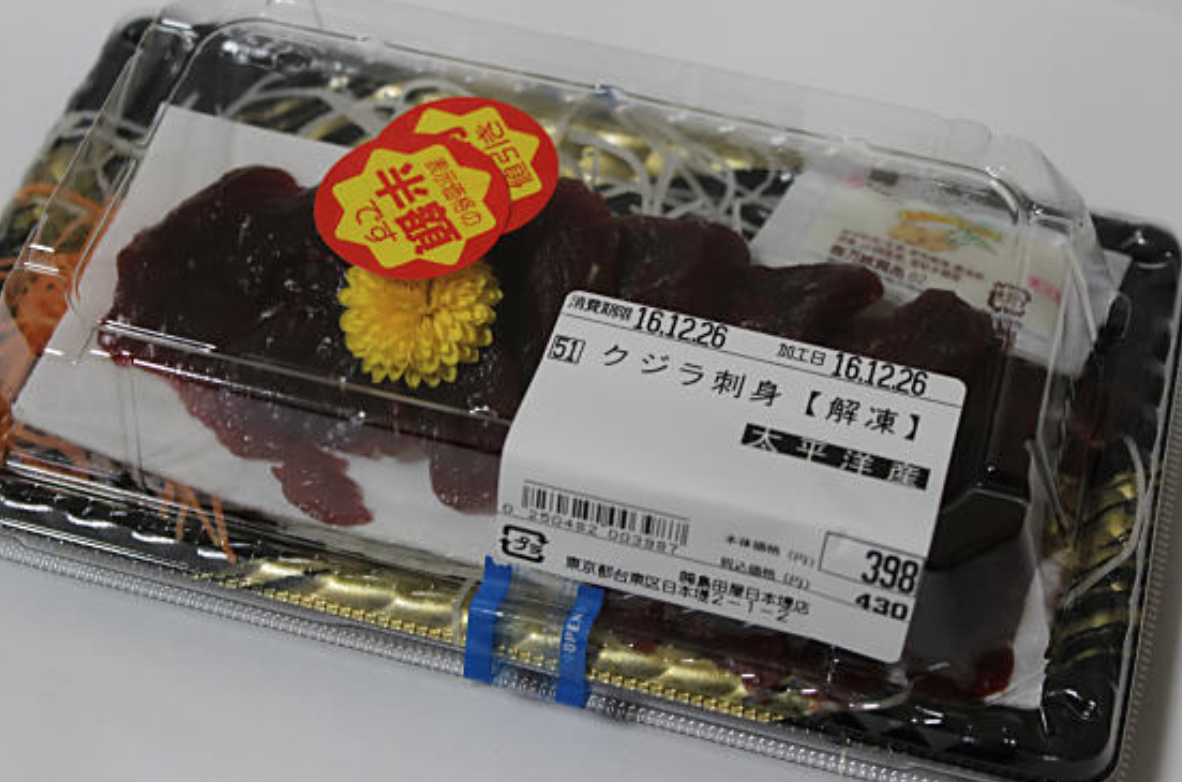 Whale meat is commonly found in Japanese supermarkets, although its consumption has dropped dramatically. (Image via Shuutak)
Whale meat is commonly found in Japanese supermarkets, although its consumption has dropped dramatically. (Image via Shuutak)
Foreigners who are not used to eating raw eggs due to the possibility of salmonella poisoning might also be surprised that the Japanese find nothing wrong with eating them completely uncooked.
Slow reversal of dog meat-eating trend
Eating dog meat is becoming less and less common in East Asia.
In April 2017, Taiwan became the first in Asia to ban the consumption of dog and cat meat.
Demand for dog meat in South Korea has been falling steadily over the years too, which led to fewer restaurants offering dog meat.
The country also recently shut down its largest dog meat slaughterhouse, Taepyeong, in 2018.
The move was hailed by activists as a landmark achievement and a contributing factor to the demise of the country's dog meat trade.
However, in some parts of Southeast Asia, such as Vietnam and Cambodia, the dog meat trade is on the rise.
Some anti-meat activists might point out that there is no difference between the dog meat trade and other meat industries.
But unlike South Korea, where dogs sold for their meat are kept in dog farms, it is not uncommon for dogs to be snatched off the streets or from people's homes in countries such as China and Cambodia.
Protesters who condemn the annual Yulin dog meat festival in China also say the animals are often tortured first before getting killed as the locals believe the adrenaline released makes the meat more tender and tastier.
Not only Asians eat dog
Dog meat is not only consumed in Asia.
In the United States, where states such as California and New York explicitly outlawed dog meat, it is still legal to consume dog meat in 43 states, according to Dogtime.
And while it is illegal in all states for stores to sell dog meat, this does not prevent an individual from killing and eating a dog or selling meat to another person, as long as it is not done through a store.
In the United Kingdom, while you cannot buy or sell dog meat, it is legal to eat dogs as long as you kill it "humanely", reported BBC.
Cat and dog meat are also consumed in Switzerland, although it is not common.
If you like what you read, follow us on Facebook, Instagram, Twitter and Telegram to get the latest updates.
